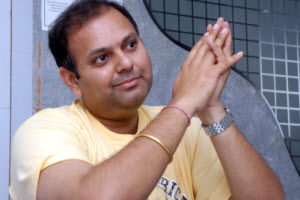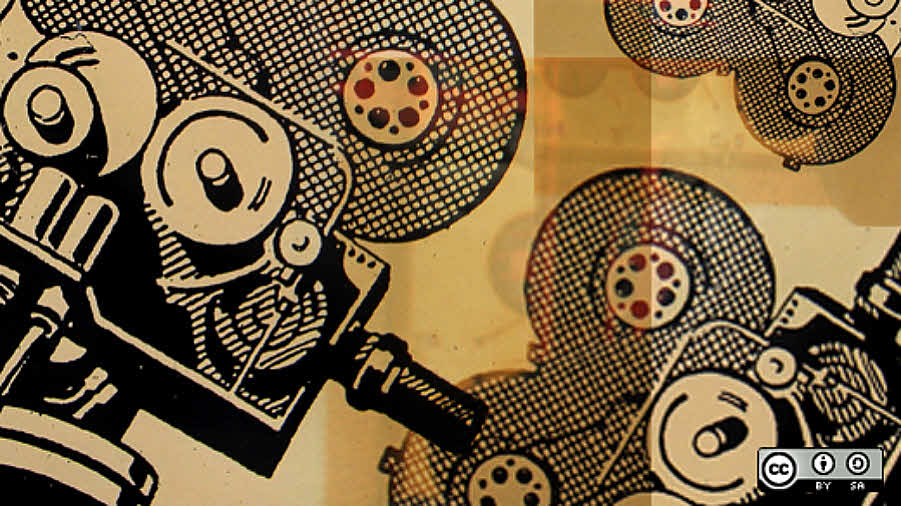A critically acclaimed feature film and many short films to his credit – that’s the Arun Vaidyanathan we know of, today. But, how did this journey begin? Tell us about your first-ever inspiration that has got you to where you are today.
There are many inspirations for me. My dad comes first because he encouraged me to take up all kinds of extra-curricular activities. I used to sing, dance, perform mimicry and what not, during my childhood. Eventually, I got interested in writing out of my own. Filmmaking, at the end of the day, is expressing your ideas and vision in a bigger canvas. Obviously, being an ardent fan of cinema and cinema being a bigger medium, my love towards films grew stronger. To answer your question, the journey began from my childhood itself and my dad was the biggest inspiration.

You have been a part of the Tamil television industry and have also written for magazines. Can you share some memorable experiences from this phase of your life? Have these experiences helped in shaping your film making career?
Of course, any experience towards writing and filming at a younger age helps the filmmaker immensely. For example, I used to write ‘dialogs’ for ‘Junior Vikatan’ ( a tamil magazine) from my hometown, Sirkali, and would feel immense joy whenever it got published. Today, when people appreciate the naturally written dialogs of ‘Achchamundu! Achchamundu (AA)’, those memories comes to my mind. I remember I used to go to the railway station early in the morning, where the magazines were picked up by agents for distribution; whenever my name used to appear on the magazine, I used to feel like a hero. Later in life, I enjoyed so much freedom in producing a variety of programmes during my television job. I learnt so many things about the entertainment industry. The most unforgettable television program was ‘Hollywood Special’, where I came across some wonderful Holllywood films and reviewed them for television.
Talking of your short films, which was the first one that you made? When you think of it now, what are the memories that come rushing to your mind?
When in the New York Film Academy (NYFA), I made a three-minute-long silent film ‘Forgiven’ as part of the curriculum. The story was simple – a thief breaks into a house of a lonely woman. When he is about to leave, he gets epilepsy and falls on the floor. The woman, instead of calling the police, ends up saving the thief’s life by forgiving him. It’s a small film but was well appreciated by classmates and the teacher. Regarding memories – we were all students at that time, so we messed up so many things during the filming process. Most of the shots came out a little darker than we expected and I got so tensed about the final output. Fortunately, the theme of the story suited the dark nature of the lighting and worked! Just getting hold of a camera, assembling a team and giving life to the written words is an awesome experience.
Your short films have won many awards. Which among them has been the most memorable one for you?
Each and every film of mine is an important learning exercise. If you want me to pick one film, ‘The Seance’ has a special place in my heart. This short film got into ‘Triggerstreet’, founded by Academy-award-winner Kevin Spacey, and Dana Brunetti. I always wanted to make a short film that would get into their festival, since it is primarily voted by audience. I challenged my wife that this film will make it there. Although I was confident that I had filmmaking in me, I wanted to prove the fact to my wife so that I could leave my day job of a software engineer. I would say that this short film opened the doors to a feature film for me.
Coming to your feature film, Achchamundu Achchamundu (AA), when was the idea born? What made you decide that you should do such a movie? Please share a few words on the journey from the conception to the making and release of the film.
I wrote AA’s idea especially to make it as an independent Hollywood film, with an American protagonist and a Mexican painter. In fact, this idea was written at least three years before the formal Tamil script was written. One fine day, I felt that this film should be made for an Indian audience with a global vision. There are two reasons for this – Ang Lee’s ‘Wedding Banquet’ which had a Chinese protagonist and an American setting is one reason; the second reason was the idea of getting distribution in our country if I had some name stars. I was very confident that the film would be seen by the audience if made in Tamil. Getting distribution for a debut filmmaker is very tough in the U.S, that too without a studio backup. I had the urge to tell this story because I read so many of such incidents happening in the world but none of them had been made into a movie, especially in this narration format. Like any other film, I had to struggle a lot when I decided to make AA and if not for my producers, this would not have happened! I am so happy now that I was able to represent the NRI life, as close to reality in a mainstream film. I am glad that AA will be a reference point in future for many technical and conceptual reasons.
I am sure there would have been some memorable moments on the sets of AA. Can you share some of them with us?
Prasanna got hurt in the fight sequence with John Shea. John’s fist landed directly on Prasanna’s forehead and he became unconscious for almost half an hour. Looking back, it was very scary and I can’t even imagine what would have happened if he had had to take a break, considering our tight schedule and budgetary reasons. Live sound and speaking tamil made Sneha work really hard. She felt that there were a lot of tongue twisters in my dialogs. Prasanna and I would erupt into laughter whenever she made mistakes, since it would give a totally different meaning! All said and done, she was such a professional and never gave up. Being a Telugu–speaking, Mumbai-born girl who was entirely brought up in Dubai, Sneha did a great job in learning and delivering lines. Another instance was the notorious bedroom scene where John Shea’s character has to smell the blanket and lie down in Riththika’s bed which was so tough to shoot and John Shea told me ‘Arun, I hope you finish this scene fast’. Knowing the complexity, I wrapped it up quickly and wherever it got screened, this scene conveyed the intentions so intense, I saw lot of women closing their eyes out of fear and disgust. The filming and the impact – definitely memorable!
Looking back at your career, what was your first failure and first success? How did you feel when you went through them?
Nothing should be termed as a failure in filmmaking since it involves lot of hard work, money and people’s efforts. I would rather use a friendly term called ‘Learning experience’ and I don’t think there is going to be an end to it. I like the saying, “There should be an award for just completing a film’. I believe in that sincerely and in that sense, every film is a success in its own terms!
What are the lessons that you have learnt of your career as a filmmaker?
Planning is the key in filmmaking. Whatever your compromises are in making a film, it will be seen and heard by people. There is no way to cover it up. This industry is mainly for passionate people and for those who are crazy enough to try certain things. Passion is the key which drives this industry although business is as important as any other thing. To all aspiring filmmakers, be prepared for a battle and buckle up for a bumpy ride! If you believe in it, the ride is worth it though!
Of all your creations and projects, which is the most special? Why?
Achchamundu! Achchamundu! – a debut feature film is a dream come true for any filmmaker. I had a conviction to do my own definition of ‘good cinema’ and I am glad AA delivered that.
Lastly, as a filmmaker, what do you think is the most important role of cinema – is it educating the audience, entertaining the audience or driving a change? Why? What can the audience look out for in Arun Vaidyanathan’s future projects?
Filmmaking, like books can’t be categorized under one umbrella. A good film will do all the above said things. It will entertain, educate and drive a change. If it succeeds even in any one of the above, it’s very much fine. I want to make good films and in all kinds of genre and that’s what the audience can expect.
Picture by Todd Harris under CC license
